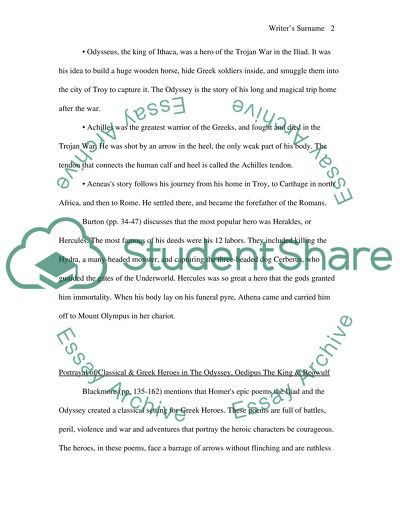Cite this document
(“Classical and Greek Hero Essay Example | Topics and Well Written Essays - 2250 words”, n.d.)
Retrieved from https://studentshare.org/miscellaneous/1532293-classical-and-greek-hero
Retrieved from https://studentshare.org/miscellaneous/1532293-classical-and-greek-hero
(Classical and Greek Hero Essay Example | Topics and Well Written Essays - 2250 Words)
https://studentshare.org/miscellaneous/1532293-classical-and-greek-hero.
https://studentshare.org/miscellaneous/1532293-classical-and-greek-hero.
“Classical and Greek Hero Essay Example | Topics and Well Written Essays - 2250 Words”, n.d. https://studentshare.org/miscellaneous/1532293-classical-and-greek-hero.


